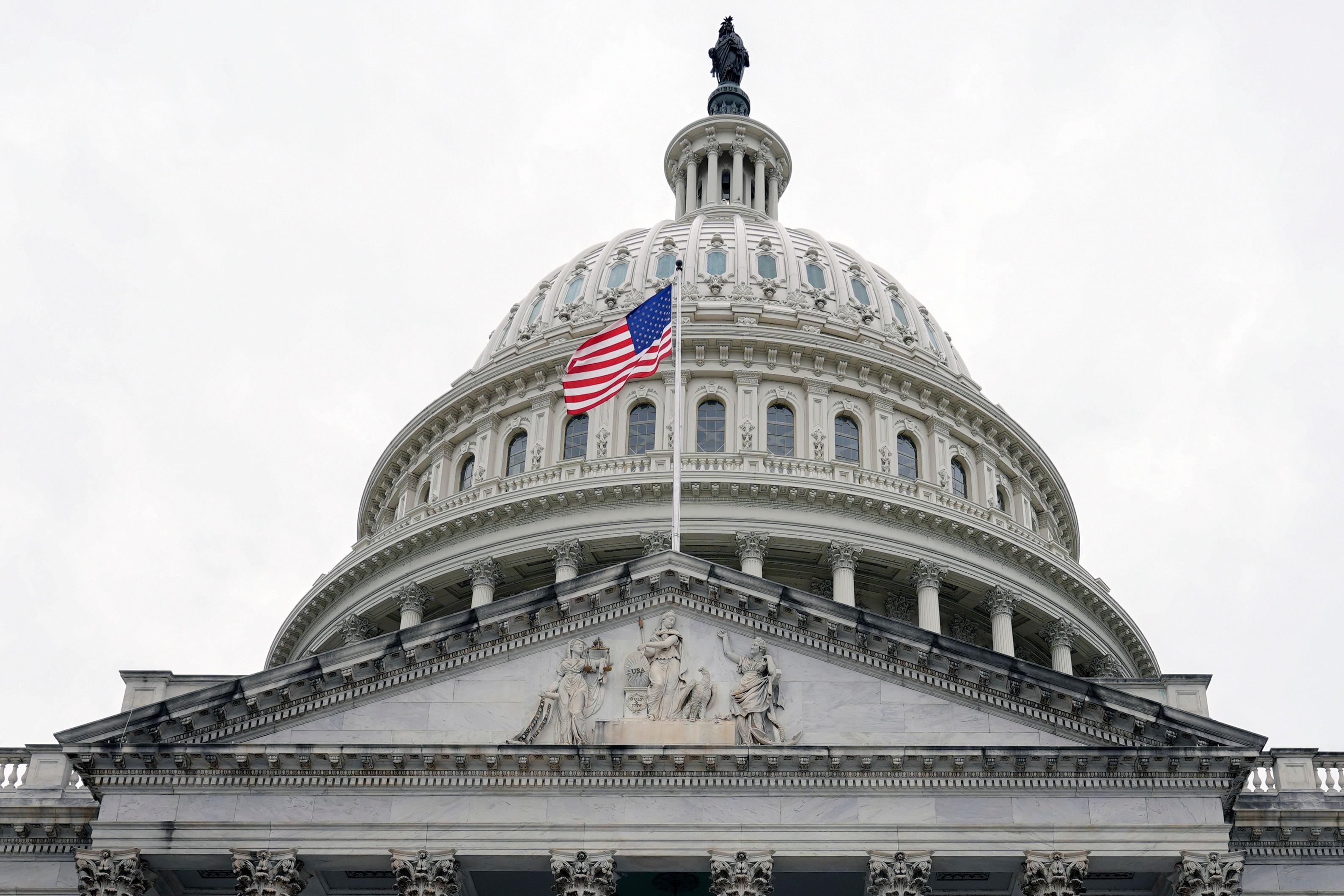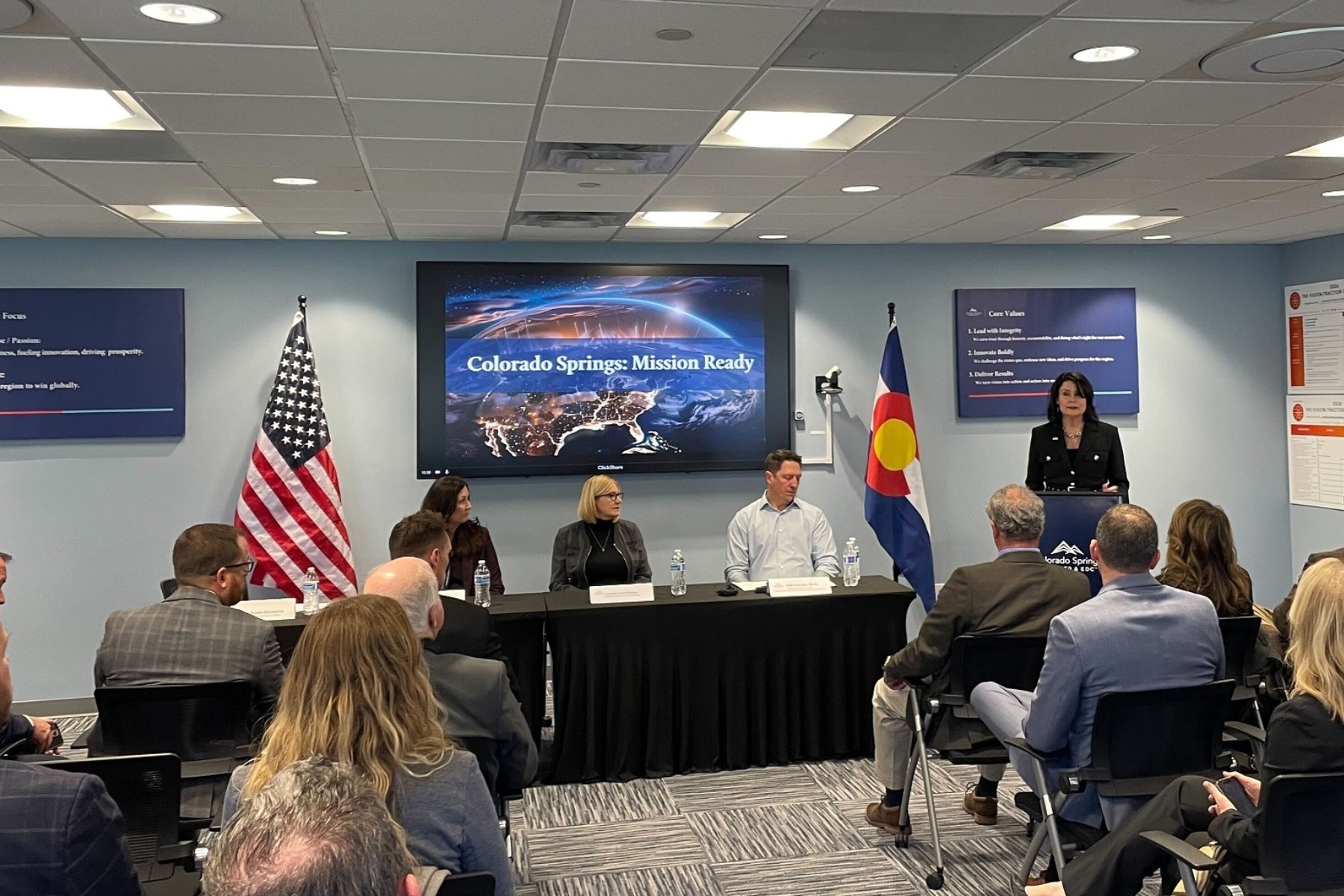
Colorado’s first-in-the-nation anti-discrimination law for how businesses and governments use AI systems in some of their decision-making is slated to go into effect in February. But Republicans in Congress could put a ten-year timeout on the whole idea.
Republicans’ One Big Beautiful Bill Act — the massive reconciliation package of tax cuts and spending reductions the House passed early Thursday morning — contains a provision that blocks states from regulating any “artificial intelligence models, artificial intelligence systems, or automated decision systems” for the next ten years. The bill also allocates half a billion dollars to incorporate commercial AI technology into the federal government’s IT systems.
After Colorado passed its AI law last year, a months-long task force comprised of representatives from business and tech, organized labor, consumer advocacy groups and privacy experts worked to refine its provisions before it takes effect. However, they failed to reach a compromise that would pass at the statehouse for this year’s legislative session. A business-led effort to delay the law’s implementation by roughly a year also failed.
In the face of all that, Gov. Jared Polis says he backs a federal moratorium on all state AI laws. Although his office said, in a perfect world, it would be shorter than ten years.
“Governor Polis is supportive of pre-empting state law for several years to give Congress time to figure this out and create a true 50-state solution to smart AI protections for consumers while driving innovation,” said spokeswoman Shelby Weiman.
Colorado’s law applies to the use of AI to inform decisions in education, banking, hiring and healthcare. It requires notification that an AI system is being used and that people be offered the chance to correct their data and appeal a potentially adverse decision against them. The Colorado Attorney General’s office would enforce any violations, but the law doesn’t give people a new private right of action to sue.
Democratic Attorney General Phil Weiser, who’s running for governor, has come out in favor of delaying the implementation of Colorado’s law, but does not support the proposed ten-year federal moratorium. He and 39 other state attorneys general sent a bipartisan letter to Congress voicing opposition.
“Instead of Congress correcting the mistake of abandoning their leadership position on the incredibly important issue of AI, this irresponsible amendment prevents states from protecting consumers from the potential harms and unforeseen consequences of this constantly evolving technology. To enact a 10-year ban on state action just as we are beginning to grasp AI’s potential benefits and harms would be a huge mistake,” wrote Weiser.
While the moratorium passed in the U.S. House’s version of the bill, it could be challenged when it gets to the U.S. Senate. That chamber has what’s known as the Byrd Rule, which limits the content of reconciliation bills specifically to budget-related matters.
U.S. Sen. John Hickenlooper’s office predicts the proposed federal moratorium will be stripped from the bill in the Senate because it’s a pretty clear-cut example of setting policy, not to mention the risk of ensuing court battles.
Hickenlooper said he would like to see the federal government get more active on AI. He’s introduced a number of bipartisan bills on the issue and is the ranking Democrat on the Senate’s Consumer Protection, Technology, and Data Privacy subcommittee.
“AI is moving fast and has the potential to change all of our lives. We have to move just as fast to set sensible guardrails to protect consumers,” said Hickenlooper in a written statement. “The U.S. can – and should – take back the reins on AI leadership and innovation. It’s well past time for Congress to work together and set national standards for AI.”
Senator Michael Bennet’s office said he’s monitoring the situation at the federal level. When it comes to the state, Bennet, who is running for Governor, signed onto a letter earlier this month, along with other Democrats, including Polis and members of Congress Joe Neguse and Brittany Pettersen, asking state lawmakers to push back the implementation of Colorado’s law.
“This pause will allow consumer advocates, Colorado’s business community, and other states to collaborate on a balanced, future-ready framework – one that protects privacy and fairness without stifling innovation or driving business away from our state,” said the letter.
Hickenlooper declined to sign that letter. His office said he knows from personal experience, as a former Governor, that it can be unhelpful for federal representatives to inject themselves into state issues.
Barring a federal moratorium, the Colorado Technology Association, and other business leaders want Polis to call lawmakers back to the Capitol for a special legislative session to delay the bill’s implementation to at least 2027, “ensuring stakeholders have adequate time to craft a more workable and equitable framework,” wrote Chamber of Progress Director Kouri Marshall in a letter from the tech industry to Polis.
When CPR News asked Polis about the push for a special session, he said the AI law needs changes, “and a special session is one such venue where it could be addressed.”
He later told the Colorado Sun that he wouldn’t recall the legislature solely for the AI law but said it would certainly be part of any special session, should lawmakers have to come back for other reasons. Specifically, state leaders are watching for any spending cuts in the Congressional budget reconciliation that might immediately throw the state budget out of balance. Polis also said any special session that takes up AI would likely focus on delaying the law, rather than hammering out complex and time-consuming policy changes to it.
Meanwhile, consumer rights advocates and supporters of Colorado’s law say the February implementation date must stay on track to provide transparency about how and when AI systems are used to make consequential decisions about people’s lives.
Democratic Rep. Brianna Titone of Arvada, one of the main sponsors of Colorado’s AI law, called the proposed ten-year federal moratorium on state AI laws “crazy.”
“I'm concerned about the future of AI if we don't have the ability to formulate any kind of regulations at the state level.”
Titone said the last decade has shown the critical role states can play on many policies, creating models for other states and even the federal government.
“And if we're not the laboratories of democracy to be able to put safeguards in place for things that are potentially this dangerous, I think that we have a real problem on our hands moving forward.”
Funding for public media is at stake. Stand up and support what you value today.








